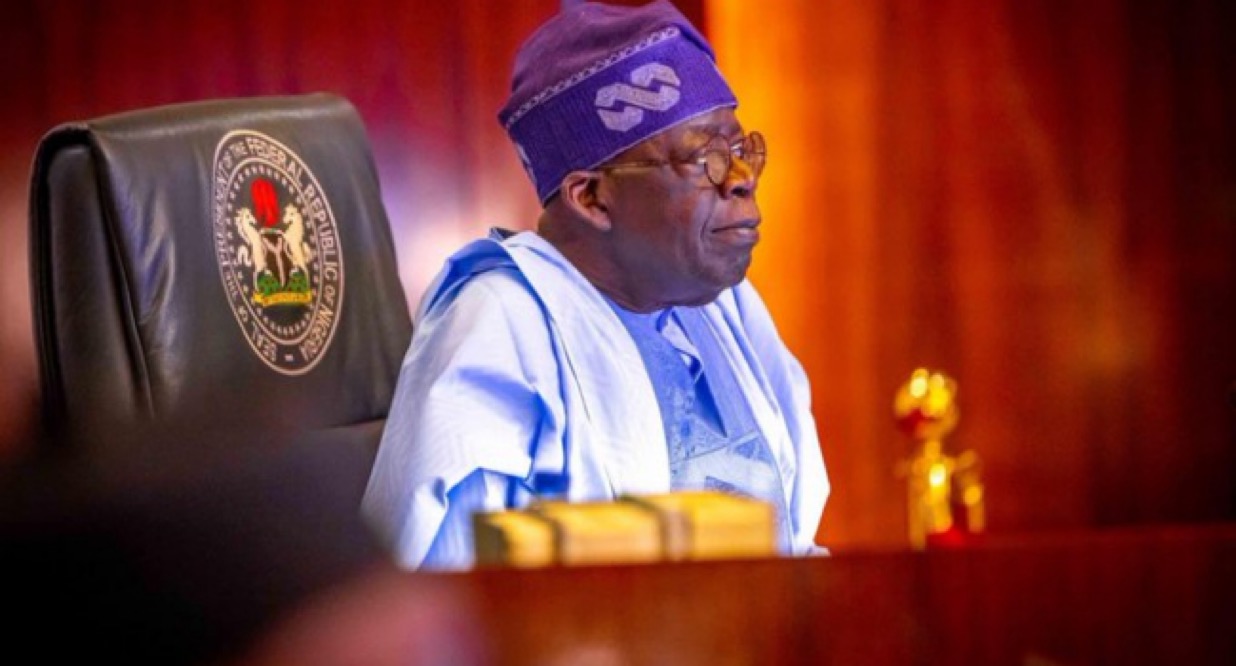President Bola Ahmed Tinubu has once again appealed to Nigerians to endure the challenges of his administration’s sweeping economic reforms, promising that the nation is on the cusp of brighter days. Speaking at the inauguration of the ambitious Lagos-Calabar Coastal Highway on Sunday, Tinubu acknowledged the hardships faced by citizens but insisted that his policies are laying the foundation for long-term prosperity. The plea, a recurring theme in his presidency, comes amid rising public discontent, protests, and mixed sentiments about Nigeria’s economic trajectory.
Tinubu’s administration, which took office in May 2023, has implemented bold and controversial measures, including the removal of the fuel subsidy and the unification of exchange rates. These policies, aimed at addressing decades of economic mismanagement, have triggered significant inflation and increased living costs, leaving many Nigerians struggling to afford basic necessities. The fuel subsidy removal, in particular, has been a lightning rod for criticism, as it led to a sharp rise in fuel prices, impacting transportation, food, and other essentials. In his Independence Day address on October 1, 2024, Tinubu defended these reforms, arguing that the subsidy system was riddled with corruption, costing Nigeria billions while benefiting a select few.
“These are not decisions taken lightly,” Tinubu said at the highway inauguration, his voice measured yet resolute. “We inherited a broken system, but we are fixing it. The pain is temporary, but the gains will be enduring. I beg for your patience; there is light at the end of the tunnel.” He pointed to recent economic indicators as evidence of progress, noting that inflation has dropped from a high of 34% to 24% and that the World Bank projects Nigeria’s economy will grow by 4% in 2025. The coastal highway project, a 700-kilometer infrastructure endeavor connecting Lagos to Calabar, is touted as a cornerstone of his administration’s plan to boost trade, connectivity, and economic diversification.
However, the optimism from the presidency contrasts sharply with the reality on the ground. In cities like Abuja, Lagos, and Ibadan, protests have erupted over the past year, with citizens decrying the soaring cost of living. Michael Olaleye, a Lagos-based trader, voiced the frustration felt by many: “We hear about economic growth, but my customers are buying less because they can’t afford it. How long are we supposed to wait?” The sentiment is echoed across social media platforms, where Nigerians express exhaustion with promises of future prosperity while grappling with immediate hardships.
Despite the criticism, Tinubu’s supporters argue that the reforms are necessary to break Nigeria’s dependence on oil revenue and address systemic inefficiencies. The Grassroots Support for Tinubu 2027, a pro-government group, has been vocal in its defense, organizing rallies to highlight what they describe as “tangible progress.” Victory Azimih, a member of the group, said, “Change is never easy. The president is tackling problems that past leaders ignored. We need to give him time.” The group points to initiatives like the coastal highway and efforts to stabilize the naira as evidence of forward-thinking governance.
Economic data offers a mixed picture. While inflation has indeed declined, it remains high, and the cost of essentials like rice, fuel, and electricity continues to strain household budgets. The unification of exchange rates, intended to create a more transparent forex market, initially led to a sharp devaluation of the naira, though recent reports suggest modest stabilization. The World Bank’s 4% growth projection is encouraging, but analysts caution that the benefits may not trickle down to ordinary Nigerians without targeted interventions. Programs like the Consumer Credit Corporation and the Nigerian Education Loan Fund, championed by Tinubu, aim to provide relief, but their rollout has been slow, leaving many skeptical about their impact.
Beyond economics, Tinubu’s administration faces scrutiny over security and human rights. In November 2023, Amnesty International released a report criticizing the government for failing to address ongoing human rights violations, including arbitrary arrests and attacks on journalists. Insecurity, particularly in northern Nigeria, remains a pressing concern, with banditry and kidnapping disrupting lives and livelihoods. These challenges add to the perception that the government is struggling to deliver on its promises, even as it pushes for economic transformation.
The Lagos-Calabar Coastal Highway, a flagship project, symbolizes both the ambition and the controversy of Tinubu’s presidency. Spanning nine states and designed to enhance regional trade, the highway is expected to create jobs and stimulate economic activity. However, its high cost and questions about funding transparency have sparked debate. Critics argue that resources could be better allocated to immediate relief measures, while supporters see it as a bold step toward Nigeria’s economic independence.
As Tinubu’s first term progresses, the narrative of patience versus immediate results continues to define his presidency. For many Nigerians, the question is not whether reforms are necessary but how long they can endure the pain before seeing the promised gains. “We are a resilient people,” said Aisha Mohammed, a schoolteacher in Abuja. “But resilience has its limits. We need to see results, not just hear promises.”
Tinubu’s call for patience is a gamble on Nigeria’s future, one that hinges on the success of his reforms and the government’s ability to communicate tangible progress. As the nation navigates this turbulent period, the voices of both supporters and skeptics will shape the path forward. For now, Nigerians wait—some with hope, others with growing frustration—for the light at the end of the tunnel to come into view.
Join our Whatsapp channel to stay updated always!



b8yeq8